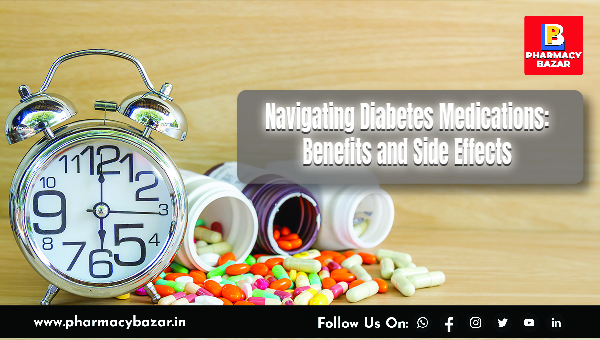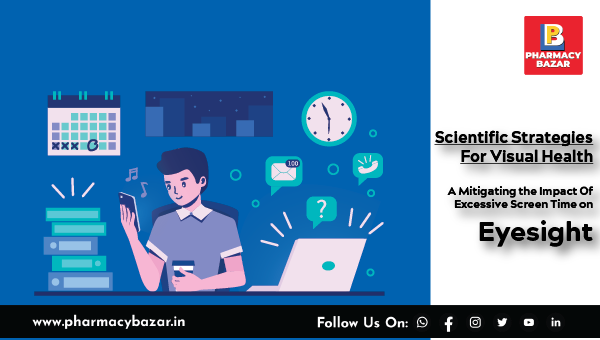Scientific Strategies for Visual Health: Mitigating the Impact of Excessive Screen Time on Eyesight
Feb 15, 2024
Abstract:
In contemporary society, where digital screens dominate our daily lives, the prevalence of visual impairments among younger individuals has risen, prompting a need for evidence-based practices to maintain optimal eyesight. Contrary to popular belief, certain diets or exercises do not significantly enhance visual acuity or address underlying vision issues. Ophthalmologists emphasize the importance of adopting healthy habits to safeguard eye health, presenting scientifically-backed recommendations.
1. Vision Determinants and Dispelling Myths:
Dr. Parul Sharma, a leading ophthalmologist, asserts that vision is primarily influenced by the structural aspects of the eye, including the cornea, lens, and retina. Debunking the myth that exercises or diets can substantially improve vision, Dr. Sharma underscores the need for evidence-based approaches in preserving eye health.
2. Screen Time Management:
Extended exposure to digital screens poses a risk of eye strain, resulting in symptoms such as fatigue, dryness, and blurred vision. Implementing the 20-20-20 rule, wherein a 20-second break is taken to focus on an object 20 feet away every 20 minutes of screen use, is recommended by professionals to mitigate strain and prevent digital eye strain or computer vision syndrome.
3. Prioritizing Rest:
Promoting sufficient rest is identified as a key factor in enhancing eyesight. Dr. Sharma recommends ensuring 7 to 8 hours of nightly sleep and advises closing the eyes to facilitate relaxation if sleep proves elusive. Adequate rest contributes to overall eye health.
4. Nutritional Support for Eye Health:
Highlighting the role of nutrition, experts emphasize the significance of specific nutrients such as vitamins A, C, and E, along with omega-3 fatty acids, in supporting eye health. A well-rounded diet comprising fruits, vegetables, whole grains, lean proteins, and healthy fats can deliver the essential nutrients required for optimal eye function.
5. Regular Eye Check-ups:
Annual eye examinations play a pivotal role in early detection of changes in vision or underlying eye conditions. Optometrists and ophthalmologists evaluate various aspects, including visual acuity, eye pressure, eye muscle coordination, and retinal and optic nerve health, leading to timely interventions if any issues are identified.
6. Maintaining Eye Lubrication:
Addressing the common problem of eye dryness, professionals recommend opting for larger screens during extended screen time to promote frequent blinking and reduce eye strain. Adequate lubrication is crucial in preventing future health complications.
7. Caution Against Over-the-Counter Medications:
In instances of eye issues, seeking professional consultation is advised over self-medication with over-the-counter remedies. Some medications may contain steroids, posing potential harm to eyesight if used improperly.
In conclusion, implementing these evidence-based practices collectively contributes to sustaining clear vision and mitigating the adverse effects of excessive screen time on eye health.
DISCLAIMER: This article is the property of Pharmacy Bazar and is protected by copyright laws. The information provided in this article is for educational and informational purposes only and is not intended to be a substitute for professional medical advice, diagnosis, or treatment. Always seek the advice of a qualified healthcare provider with any questions you may have regarding a medical condition. Never disregard professional medical advice or delay in seeking it because of something you have read in this article. The author and publisher of this article do not endorse any specific treatments, procedures, or products mentioned in this article.
Recent Post

Blood Cancer: Early Warning Signs and Diagnosis

Understanding Gallstones: Causes, Symptoms, and Treatment Options

Navigating Diabetes Medications: Benefits and Side Effects

Revolutionizing Cancer Treatment: How Unleashing T Cells' Energy Could Transform Immunotherapy

The Power of Lower Back Stretches: Benefits and Best Yoga Asanas for a Healthy Spine

8 Health Conditions That Could Be Due to Magnesium Deficiency

Unlocking Brain Health: How Lifestyle Choices Impact Cognitive Functions

When Speech Takes a Surprising Turn: Unraveling Foreign Accent Syndrome

The Optimal Time to Take Your Vitamin D Supplement: Insights and Best Practices

Beyond Diabetes: Unveiling the Hidden Health Risks of Insulin Resistance

